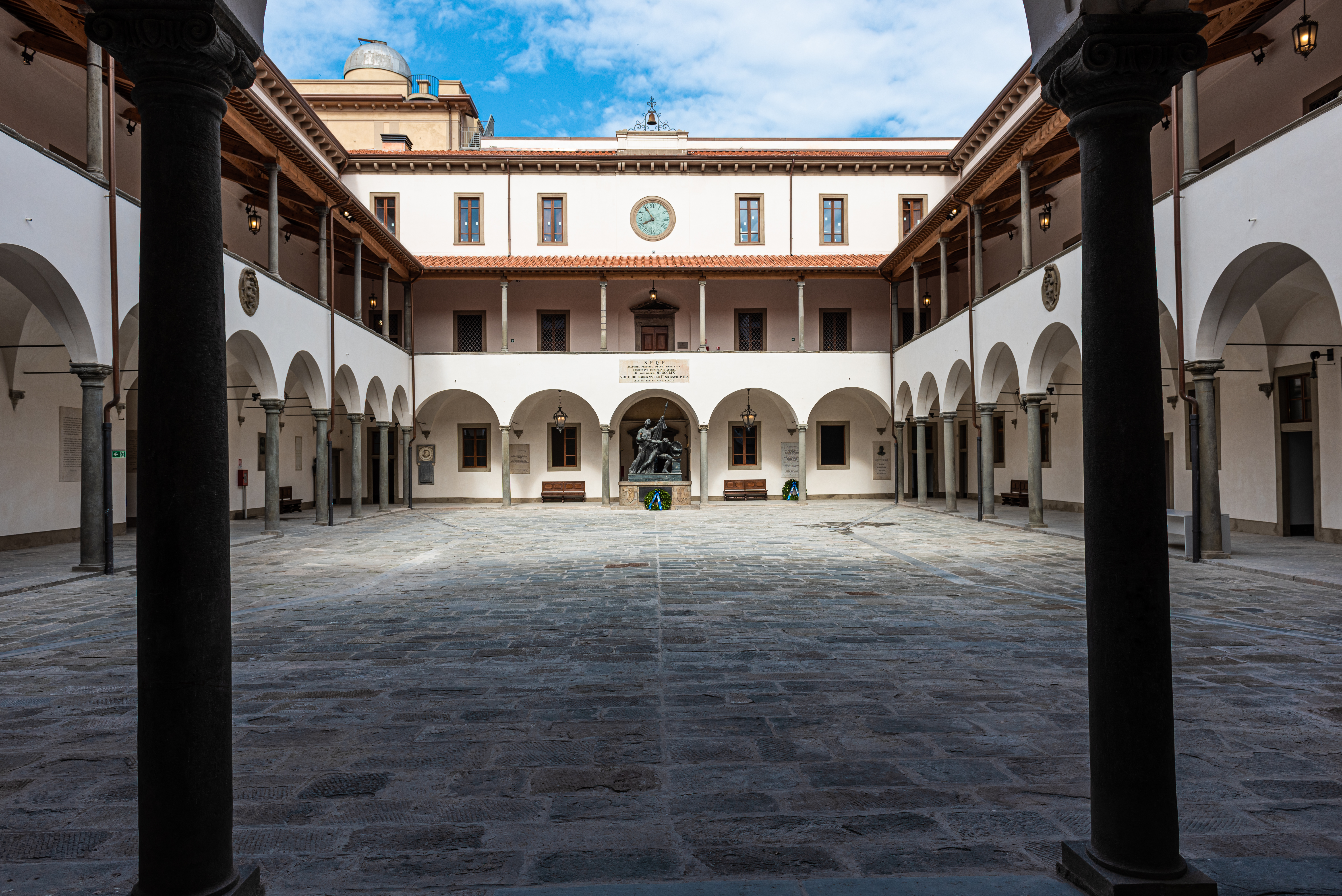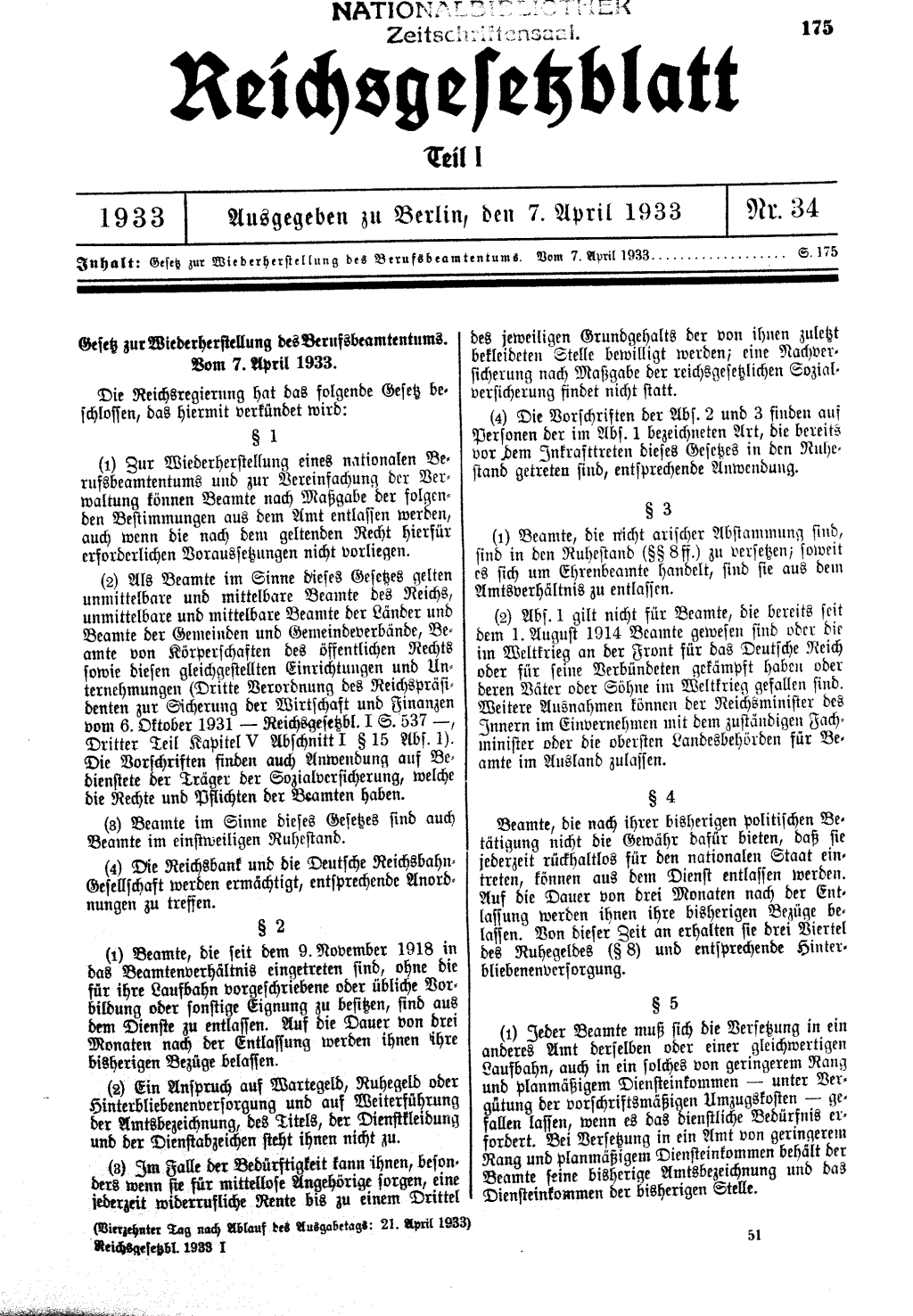|
Claudio Moreschini
Claudio Moreschini (born 1938?) is an Italian expert in Classical Philology, Platonism and Patristics, often approaching early Christian authors from a literary perspective. After initial studies at the University of Pisa and at the Scuola Normale Superiore in the same city, Moreschini studied at Oxford, notably with E.R.Dodds and Eduard Fraenkel to whom he acknowledges a special debt. From 1966 onwards he occupied a succession of posts in the University of Pisa, particularly as Professore ordinario di Letteratura Latina, Professore ordinario di Letturatura Cristiana Antica and as Head of Department. He has worked with the Istituto di Scienze Religiose at Trent and latterly at the Istituto Patristico Augustinianum in Rome. Publications include an Italian translation of Thucydides, 2 dialogues of Plato for the Budé series, 2 Ciceronian dialogues, Apuleius, Consolatio Philosophiae in the Leipzig Teubner series, Tertullian Cyprian, Jerome in Corpus Christianorum of Turnhout. M ... [...More Info...] [...Related Items...] OR: [Wikipedia] [Google] [Baidu] |
Platonism
Platonism is the philosophy of Plato and philosophical systems closely derived from it, though contemporary platonists do not necessarily accept all of the doctrines of Plato. Platonism had a profound effect on Western thought. Platonism at least affirms the existence of abstract objects, which are asserted to exist in a third realm distinct from both the sensible external world and from the internal world of consciousness, and is the opposite of nominalism." Philosophers who affirm the existence of abstract objects are sometimes called platonists; those who deny their existence are sometimes called nominalists. The terms "platonism" and "nominalism" have established senses in the history of philosophy, where they denote positions that have little to do with the modern notion of an abstract object. In this connection, it is essential to bear in mind that modern platonists (with a small 'p') need not accept any of the doctrines of Plato, just as modern nominalists need not accept ... [...More Info...] [...Related Items...] OR: [Wikipedia] [Google] [Baidu] |
Patristics
Patristics or patrology is the study of the early Christian writers who are designated Church Fathers. The names derive from the combined forms of Latin ''pater'' and Greek ''patḗr'' (father). The period is generally considered to run from the end of New Testament times or end of the Apostolic Age () to either AD 451 (the date of the Council of Chalcedon) or to the Second Council of Nicaea in 787. Eras The Church Fathers are generally divided into the Ante-Nicene Fathers, those who lived and wrote before the Council of Nicaea (325) and the Nicene and Post-Nicene Fathers, those who lived and wrote after 325. Also, the division of the Fathers into Greek and Latin writers is also common. Some of the most prominent Greek Fathers are Justin Martyr, Athanasius of Alexandria, Basil of Caesarea, Gregory of Nazianzus, John Chrysostom, Cyril of Alexandria, and Maximus the Confessor. Among the Latin Fathers are Tertullian, Cyprian, Jerome, Ambrose of Milan, Augustine of Hippo, and ... [...More Info...] [...Related Items...] OR: [Wikipedia] [Google] [Baidu] |
University Of Pisa
The University of Pisa ( it, Università di Pisa, UniPi), officially founded in 1343, is one of the oldest universities in Europe. History The Origins The University of Pisa was officially founded in 1343, although various scholars place its origins in the 11th century. It is certain, however, that from the middle of the 12th century Pisa had a “Universitas” in the original sense of the word, that is, a group of students who gathered around masters. It was during this period that Leonardo Fibonacci was born and worked. He was one of the greatest mathematicians in history who, through his work, synthesized the spirit and processes of Greek geometry and the tools of Arabic mathematics for the first time in Europe. The papal seal “In Supremae dignitatis”, issued by Pope Clement VI on 3 September 1343, granted the Studium in Pisa the title of Studium Generale with various exclusive privileges, making it universally recognised. In medieval times, the Studium Generale wa ... [...More Info...] [...Related Items...] OR: [Wikipedia] [Google] [Baidu] |
Eduard Fraenkel
Eduard David Mortier Fraenkel FBA () was a German classical scholar who served as the Corpus Christi Professor of Latin at the University of Oxford from 1935 until 1953. Born to a family of assimilated Jews in the German Empire, he studied Classics at the universities of Berlin and Göttingen. In 1934, antisemitic legislation introduced by the Nazi Party forced him to seek refuge in the United Kingdom where he eventually settled at Corpus Christi College. Fraenkel established his academic reputation with the publication of a monograph on the Roman comedian Plautus, ('Plautine Elements in Plautus', 1922). The book was developed from his doctoral thesis and changed the study of Roman comedy by asserting that Plautus was a more innovative playwright than previously thought. In 1950, he published a three-volume commentary on the ''Agamemnon'' by the Greek playwright Aeschylus which has been described by the classicist H. J. Rose as "perhaps the most erudite that any Greek play h ... [...More Info...] [...Related Items...] OR: [Wikipedia] [Google] [Baidu] |
Patristic Institute Augustinianum
The Patristicum, officially the Augustinian Patristic Institute ( la, Institutum Patristicum Augustinianum), is a pontifical institute in Rome, under the supervision of the Order of Saint Augustine The Order of Saint Augustine, ( la, Ordo Fratrum Sancti Augustini) abbreviated OSA, is a religious mendicant order of the Catholic Church. It was founded in 1244 by bringing together several eremitical groups in the Tuscany region who were fo .... It is an incorporated institute of the Pontifical Lateran University. It is responsible for the study of patristic, patristic theology, the history and theology of the Church Fathers. History The Patristicum is considered a direct continuation of the fourteenth-century ''Studium Generale'' in Rome which belonged to the Augustinian order, later alongside the Biblioteca Angelica. It was established by the Augustinians and retains the name of Augustine of Hippo, Saint Augustine in their honour. In 1873 the two institutions were separated ... [...More Info...] [...Related Items...] OR: [Wikipedia] [Google] [Baidu] |
Teubner
The Bibliotheca Teubneriana, or ''Bibliotheca Scriptorum Graecorum et Romanorum Teubneriana'', also known as Teubner editions of Greek and Latin texts, comprise one of the most thorough modern collection published of ancient (and some medieval) Greco-Roman literature. The series consists of critical editions by leading scholars. They now always come with a full critical apparatus on each page, although during the nineteenth century there were ''editiones minores'', published either without critical apparatuses or with abbreviated textual appendices, and ''editiones maiores'', published with a full apparatus. Teubneriana is an abbreviation used to denote mainly a single volume of the series (fully: ''editio Teubneriana''), rarely the whole collection; correspondingly, ''Oxoniensis'' is used with reference to the ''Scriptorum Classicorum Bibliotheca Oxoniensis'', mentioned above as ''Oxford Classical Texts''. The only comparable publishing ventures producing authoritative scholarl ... [...More Info...] [...Related Items...] OR: [Wikipedia] [Google] [Baidu] |
Corpus Christianorum
The Corpus Christianorum (CC) is a major publishing undertaking of the Belgian publisher Brepols Publishers devoted to patristic and medieval Latin texts. The principal series are the ''Series Graeca'' (CCSG), ''Series Latina'' (CCSL), and the ''Continuatio Mediævalis'' (CCCM). There is also a smaller section, the ''Series Apocryphorum'' (CCSA), devoted to Apocryphal works, and a collection of autographs, the ''Autographa Medii Ævi'' (CCAMA). The series ''Conciliorum Oecumenicorum Generaliumque Decreta'' (COGD) contains confessional documents from Churches and Ecumenical organisations in the World with start in Nicæa 325 until today. The principal series are seen as successors to Migne's Patrologiae. In 1947 Dom Eligius Dekkers, O.S.B. of the Sint-Pietersabdij in Steenbrugge, drew up a plan for editing afresh early Christian texts. His intention was to produce in a short timespan a "Corpus Christianorum", comprising new editions of the writings of Christian authors from Tertull ... [...More Info...] [...Related Items...] OR: [Wikipedia] [Google] [Baidu] |
Sources Chrétiennes
Sources Chrétiennes ( French "Christian sources") is a bilingual collection of patristic texts founded in Lyon in 1942 by the Jesuits Jean Daniélou, Claude Mondésert, and Henri de Lubac. Citations to the series are commonly made by the letters SC followed by the volume number. Overview The collection is edited by the ''Institut des Sources Chrétiennes'' (current director: Guillaume Bady) and published in Paris by ''Les Éditions du Cerf''. Each text is given on the left in Greek or Latin, with the French translation on the facing page. Over 600 works by Greek, Latin and occasionally Syriac authors have been published. Other oriental Christian (e.g. Armenian) writers have been published only in translation. An early decision was made not to exclude subsequently condemned authors (such as Origen of Alexandria). Clement of Alexandria, the Cappadocians (Basil of Caesarea and Gregory of Nazianzus) John Chrysostom, Theodoret especially are strongly represented. Most Latin write ... [...More Info...] [...Related Items...] OR: [Wikipedia] [Google] [Baidu] |
Living People
Related categories * :Year of birth missing (living people) / :Year of birth unknown * :Date of birth missing (living people) / :Date of birth unknown * :Place of birth missing (living people) / :Place of birth unknown * :Year of death missing / :Year of death unknown * :Date of death missing / :Date of death unknown * :Place of death missing / :Place of death unknown * :Missing middle or first names See also * :Dead people * :Template:L, which generates this category or death years, and birth year and sort keys. : {{DEFAULTSORT:Living people 21st-century people People by status ... [...More Info...] [...Related Items...] OR: [Wikipedia] [Google] [Baidu] |
Italian Christian Theologians
Italian(s) may refer to: * Anything of, from, or related to the people of Italy over the centuries ** Italians, an ethnic group or simply a citizen of the Italian Republic or Italian Kingdom ** Italian language, a Romance language *** Regional Italian, regional variants of the Italian language ** Languages of Italy, languages and dialects spoken in Italy ** Italian culture, cultural features of Italy ** Italian cuisine, traditional foods ** Folklore of Italy, the folklore and urban legends of Italy ** Mythology of Italy, traditional religion and beliefs Other uses * Italian dressing, a vinaigrette-type salad dressing or marinade * Italian or Italian-A, alternative names for the Ping-Pong virus, an extinct computer virus See also * * * Italia (other) * Italic (other) * Italo (other) * The Italian (other) * Italian people (other) Italian people may refer to: * in terms of ethnicity: all ethnic Italians, in and outside of Italy * ... [...More Info...] [...Related Items...] OR: [Wikipedia] [Google] [Baidu] |
1930s Births
Year 193 ( CXCIII) was a common year starting on Monday (link will display the full calendar) of the Julian calendar. At the time, it was known as the Year of the Consulship of Sosius and Ericius (or, less frequently, year 946 ''Ab urbe condita''). The denomination 193 for this year has been used since the early medieval period, when the Anno Domini calendar era became the prevalent method in Europe for naming years. Events By place Roman Empire * January 1 – Year of the Five Emperors: The Roman Senate chooses Publius Helvius Pertinax, against his will, to succeed the late Commodus as Emperor. Pertinax is forced to reorganize the handling of finances, which were wrecked under Commodus, to reestablish discipline in the Roman army, and to suspend the food programs established by Trajan, provoking the ire of the Praetorian Guard. * March 28 – Pertinax is assassinated by members of the Praetorian Guard, who storm the imperial palace. The Empire is auctioned off ... [...More Info...] [...Related Items...] OR: [Wikipedia] [Google] [Baidu] |



